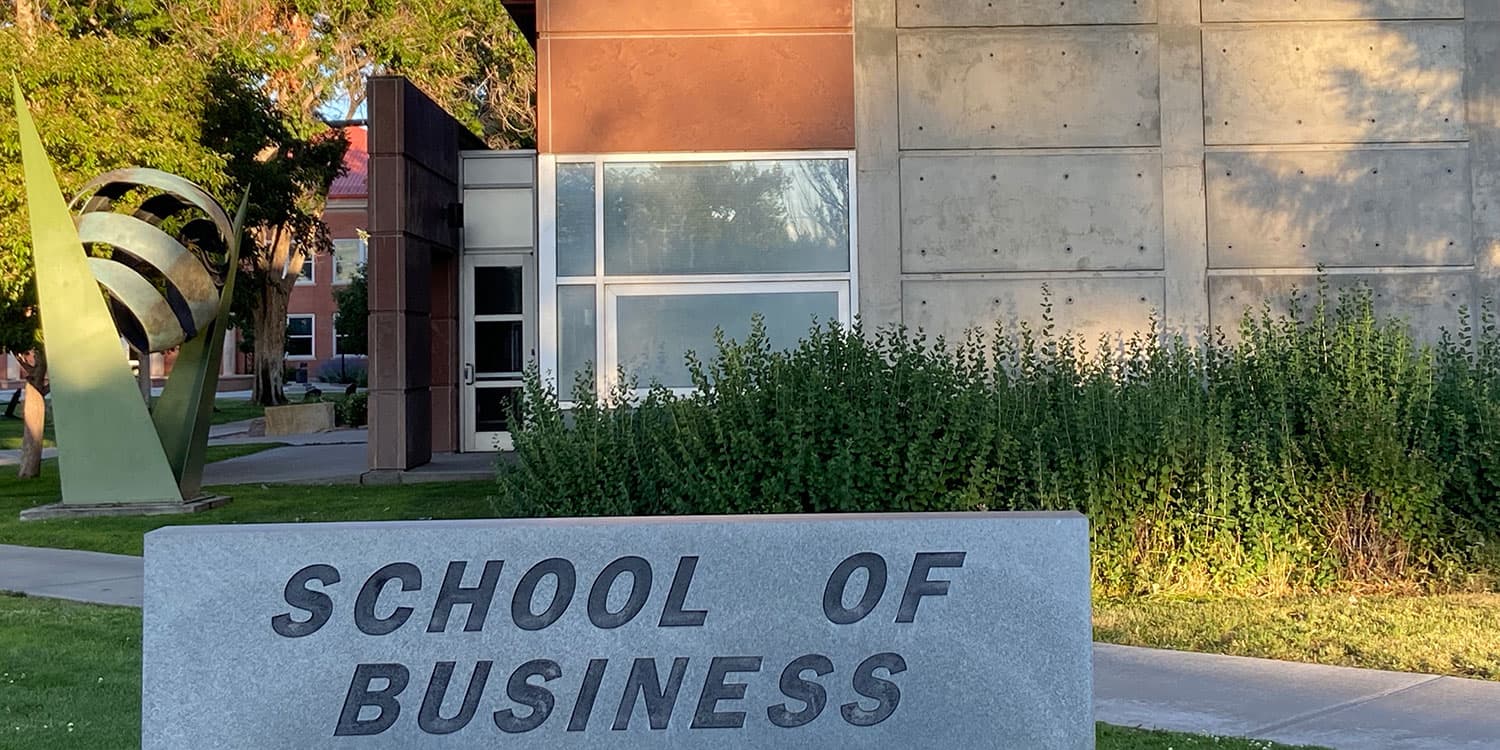Adams State University is excited with the possibilities a recent U.S. Department of Agriculture grant will have on current and future students. The inaugural, “From Learning to Leading: Cultivating the Next Generation of Diverse Food and Agriculture Professionals Program,” will support student scholarships and paid internships over the five years.
As Colorado’s premier Hispanic Serving Institution, Adams State will receive $4.6 million over the five years from the investment. Zena Buser, Ph.D., professor of business, will oversee the program. “We are excited for the USDA NextGen opportunity as it increases support for our students in pursuit of their academic goals as well as their active introduction to the SLV agriculture, food, and natural resources industries. The grant supports scholarships as well as internships, so will reduce students’ economic burden to pursuing a degree while simultaneously supporting their access to hands-on experience in the industry. We also thank our regional employers; they are instrumental to this endeavor as they welcome students into their operations, providing mentorship as well as experiential learning opportunities.”
The USDA $262.5 million grant is an investment in institutions of higher education to foster the next generation of diverse agricultural professionals across the nation. This program is funded by President Biden’s Inflation Reduction Act, which aims to lower costs for American families, expand access to markets to producers from all backgrounds and communities, build a clean energy economy and strengthen American supply chains.
The USDA National Institute of Food and Agriculture’s (NIFA) “From Learning to Leading: Cultivating the Next Generation of Diverse Food and Agriculture Professionals Program” (NextGen) will enable eligible institutions, from New York to the Northern Mariana Islands, to build and sustain the next generation of food, agriculture, natural resources and human sciences workforce. This includes efforts to strengthen USDA’s workforce through enhanced educational support, experiential learning and exposure to early career opportunities. Eligible institutions include: 1890 Land-grant Universities, 1994 Tribal Colleges and Universities, Hispanic-serving Institutions (HSI), Alaska Native-serving and Native Hawaiian-serving Institutions and institutions of higher education located in the insular areas, as well as their partners. The $262.5 million investment will provide training and support to more than 20,000 future food and agricultural leaders through 33 project partners.
“Each generation of agricultural professionals faces new challenges as we feed our world’s growing population, and the future generations give me hope that we will rise to the occasion to meet these challenges with opportunity,” said Agriculture Secretary Tom Vilsack. “We need to ensure our youth have the education and training they need to accelerate the development of an agricultural system that is climate-smart, sustainable, profitable and equitable. This historic investment from the Biden-Harris Administration in our nation’s Minority-serving Institutions brings us closer to building a workforce that represents the richness and diversity of all the communities we serve.”
The NextGen program is part of USDA’s commitment to equity across the Department and steps it has taken under Secretary Vilsack’s direction to improve equity and access, eliminate barriers to its programs for underserved individuals and communities, and build a workforce more representative of America. Earlier in the year, the USDA Equity Commission, which is comprised of independent members from diverse backgrounds, released its interim recommendations to remove barriers to inclusion and access at USDA, including by strengthening research, extension, and teaching in the food and agricultural sciences at all minority-serving institutions.
“Adams State University is very excited at the opportunities the USDA Next Gen grant will provide through experiential learning opportunities for high school and college students helping them explore and pursue agriculturally related careers,” said Adams State Acting Vice President of Academic Affairs Margaret Doell. “The scholarship opportunities provided by this grant will also reduce or eliminate the financial burden of a college education for many of the participants making college an option for all.”



